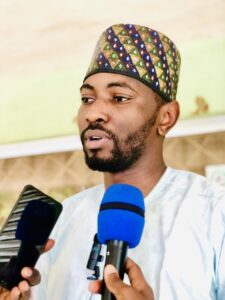By Mustapha Salisu
Policymakers, civil society organizations, and development partners on Wednesday converged at Mambayya House, Kano, for a one-day policy dialogue on gender-responsive budgeting and taxation, organized by the Tax Justice and Governance Platform, Kano.
The dialogue, which built on a two-day budget analysis exercise earlier conducted by the platform, reviewed the Kano State Government’s budget implementation report with a focus on allocations and disbursements to critical sectors such as education, health, and commerce.
Speaking at the event, Sadiq Muhammad Mustapha, Program Lead of the Tax Justice and Governance Platform, Kano, explained that the budget analysis revealed significant gaps between budgetary allocations and actual disbursements.

“Through our analysis, we identified challenges that need urgent attention. We developed a policy document which we intend to present to policymakers, highlighting the gaps and proposing possible solutions. Today’s dialogue brings together state and non-state actors to deliberate on our findings, raise awareness, and chart a collaborative way forward,” he stated.
He added that the dialogue also aimed to strengthen accountability and ensure that the challenges observed in budget implementation are addressed in the upcoming third and fourth quarters of the 2025 fiscal year.
On his part, Muhammad Abdu Dutse, Lead of the Tax Justice and Governance Platform, Jigawa State, and facilitator of the session, stressed that the forum was designed to promote pro-poor spending in Kano State.
“Citizens and experts have worked around the budget implementation report focusing on education, health, and commerce. We have provided recommendations to improve pro-poor spending, and today’s dialogue allows stakeholders to deliberate and agree on advocacy action points. Our expectation is to see a Kano that records improved human development indices, quality healthcare, standard education, and thriving commerce,” Dutse noted.
The session concluded with a call for sustained collaboration between government institutions, civil society, and the private sector to ensure that budgetary processes in Kano become more transparent, inclusive, and responsive to the needs of the people.